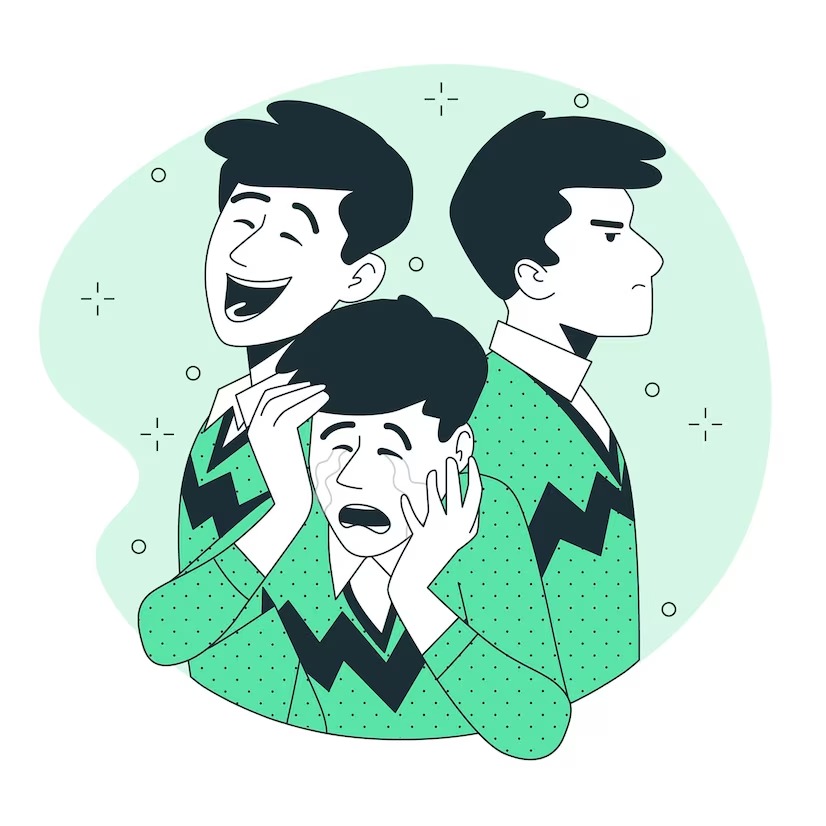
Ayurveda views Bipolar Disorder not as a single entity, but as imbalances within the three doshas (Vata, Pitta, and Kapha) and digestive fire (Agni). These imbalances lead to fluctuations in mood, ranging from manic highs to depressive lows. Treatment focuses on restoring balance and promoting emotional stability.
Ayurveda doesn’t offer a singular “cure” for Bipolar Disorder, but it provides holistic practices that complement conventional medical and therapeutic care to support individuals with this condition. Here are key strategies Ayurveda employs:
Understanding Doshas and Bipolar Disorder:
Ayurveda views Bipolar Disorder as a manifestation of imbalances in the three doshas: Vata, Pitta, and Kapha. Each imbalance presents with distinct symptoms, and treatment focuses on restoring balance and promoting emotional stability:
Ayurvedic Treatment Strategies:
Important note: These approaches are meant to complement conventional medical and therapeutic care, not replace it. Consult a doctor and mental health professional for proper diagnosis and treatment management.
Diet and Lifestyle:
Herbal Remedies

During a tele-consultation, the ayurvedic doctor will ask you about your health condition, medical history, and current symptoms. Based on the information provided, the doctor will assess your health condition and provide a personalised treatment plan that may include herbal medicines, lifestyle modifications, dietary changes, and other therapies.

During an OPD visit, an Ayurvedic doctor will assess your health condition, discuss your symptoms, and suggest a personalised treatment plan based on the principles of Ayurveda. The treatments may include herbal medicines, massages, yoga, meditation, dietary changes, and lifestyle modifications.

During your stay at Vrindavan, you will be under the care of experienced ayurvedic doctors and therapists who will assess your health condition and design a personalized treatment plan for you. The treatments may include herbal medicines, massages, yoga, meditation, and dietary changes etc.


of Experience

of Patient Treated

Classical Ayurveda Medicated Oils

Ayurveda Medicines
Vaidyaratnam Vrindavan Ayurveda Chikitsalayam is a renowned Ayurvedic healthcare facility, steeped in a rich heritage of centuries-old Ayurvedic wisdom. We offer comprehensive and authentic Ayurvedic treatment programs for a wide range of ailments, promoting holistic healing and well-being.
The Hospital is spread across 25 acres surrounded with 500 acres of forest. VAC is 100 Room IPD facility with various categories of well furnished rooms for patients along with state-of-the-art infrastructure related to panchakarma treatments / OPD and other facilities spread across the complex.

25 Acres Hospital Campus
Nestled in 250 Acres of Lush green Forest
Address- Village Thana EPIP Phase-2, Baddi, H.P
E-mail- ayurveda@vrindavanchikitsalayam.com
Phone No.- +91-7901778899

Vaidyaratnam Vrindavan Ayurveda Chikitsalayam 25 Acres Hospital Campus is Nestled in 250 Acres of Lush Green Forests
Shivalik Foothills Village
Thana, EPIP Phase 2, Baddi,
Himachal Pradesh
© 2025 All Rights Reserved.